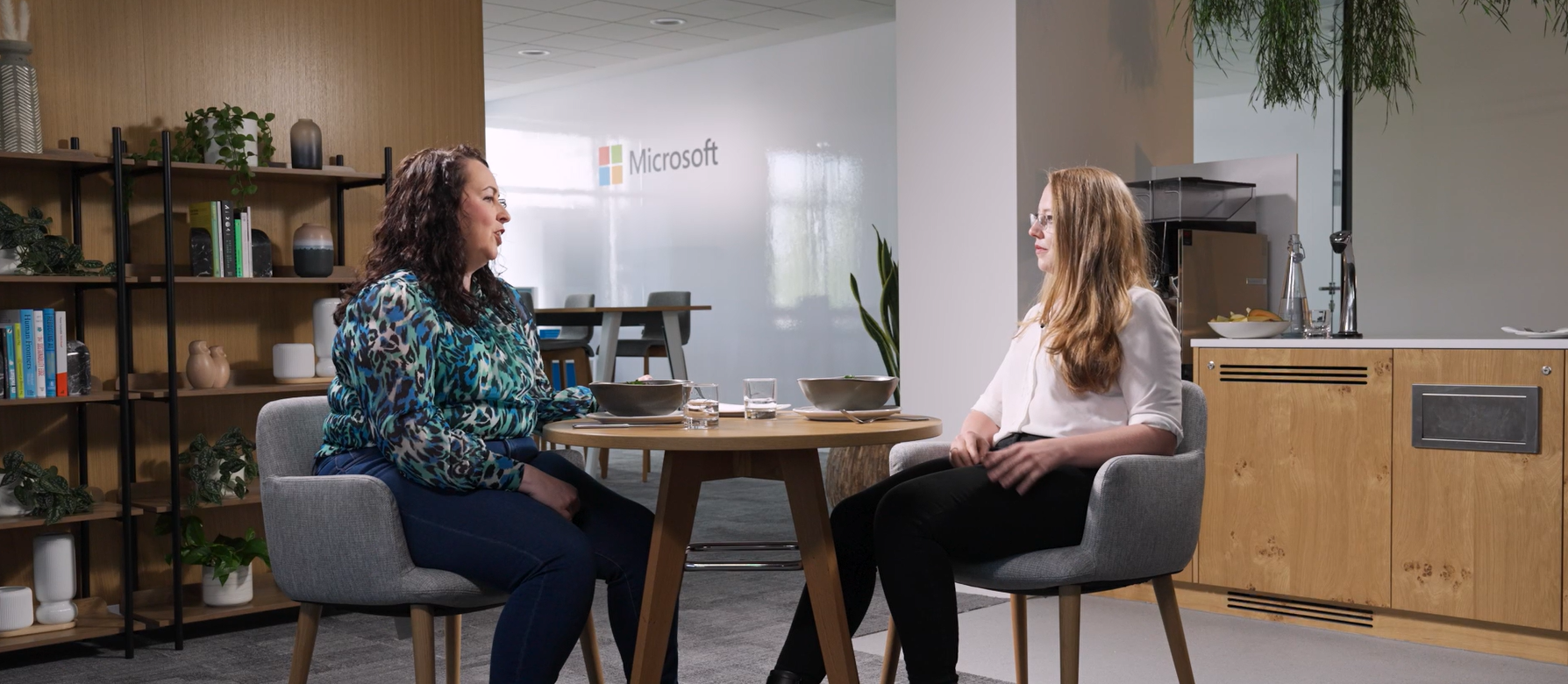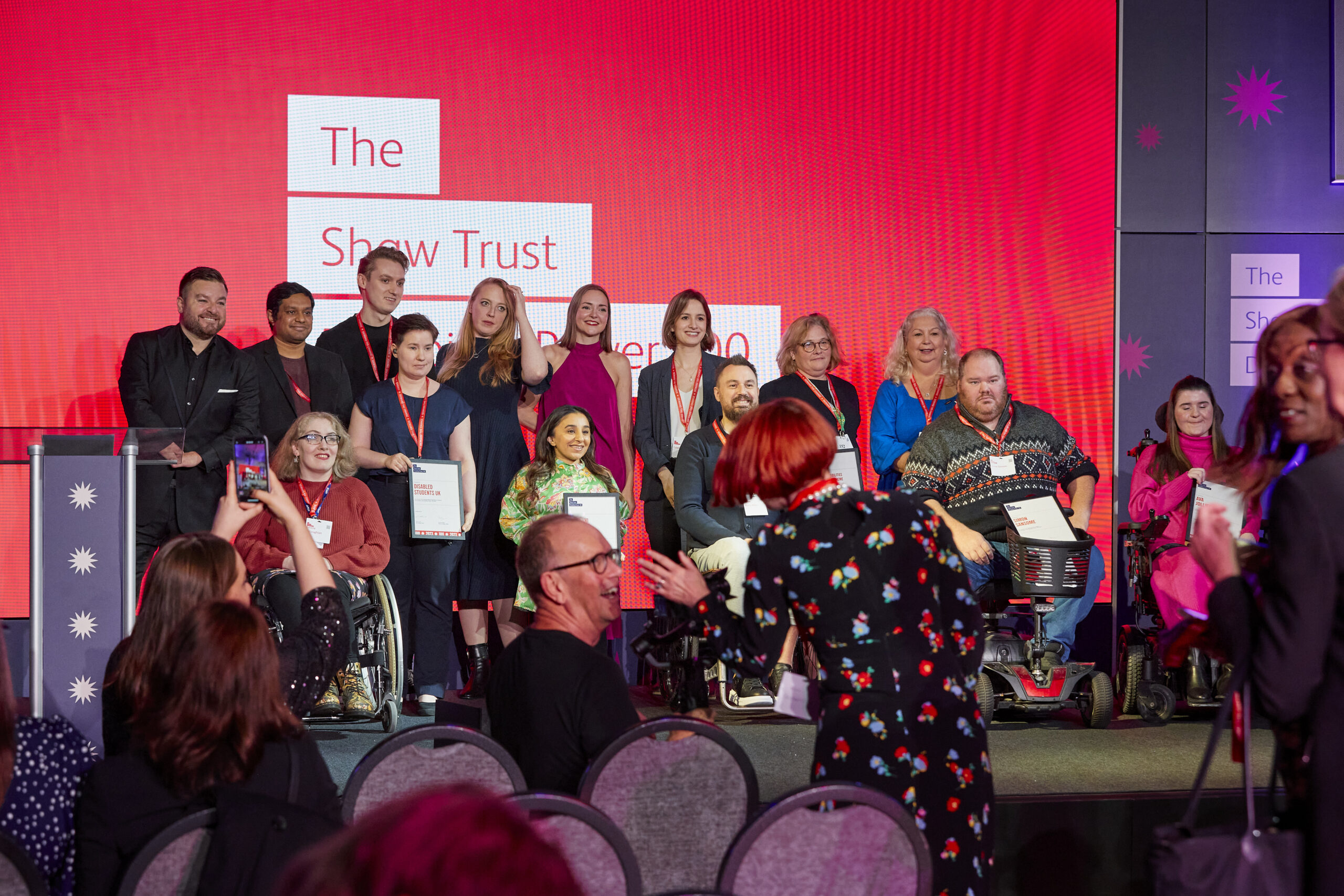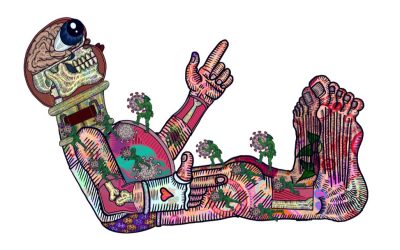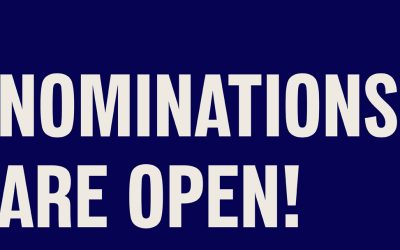Food For Thought is a series of informative disability advocacy videos. In this video, Amy Francis-Smith met Faith la Grange for a spot of lunch.
Before the meal
Amy is an architect and outgoing Vice President of Birmingham Architectural Association. She says “How design is used not only changes accessibility but perceptions, I’m interested to find out more about how Microsoft is addressing inclusive employment through accessibility.”
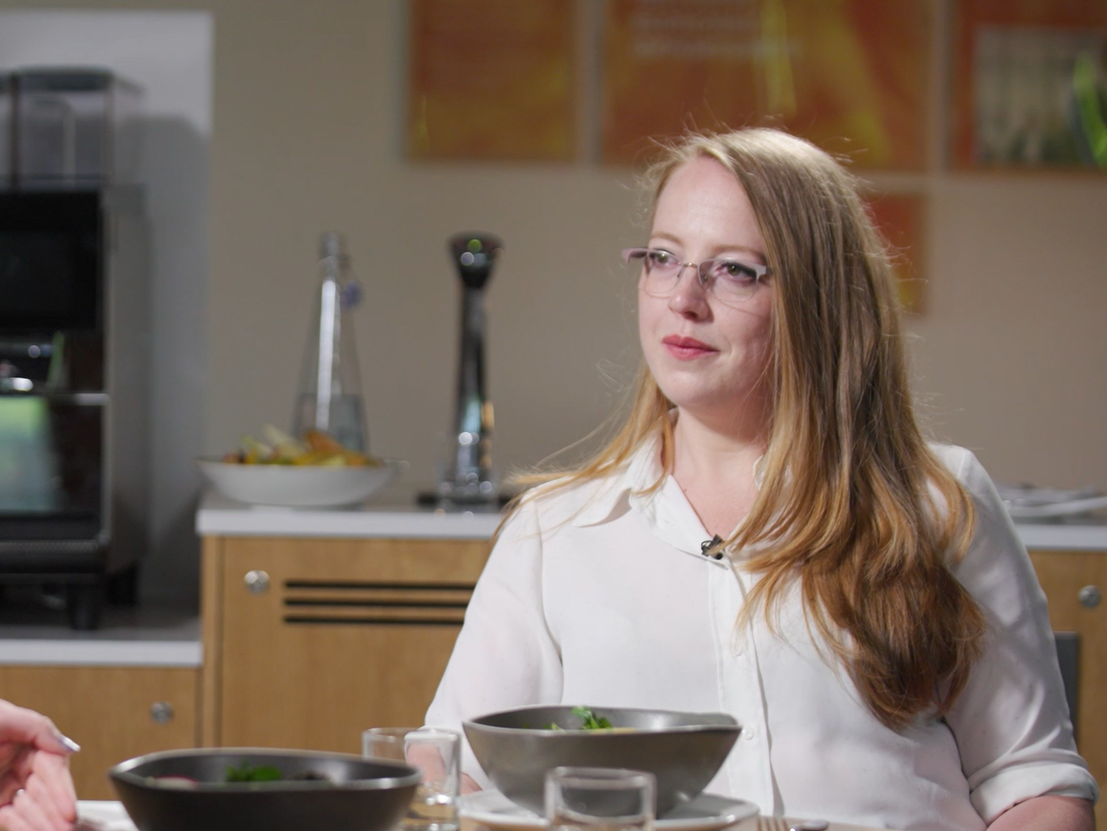
Faith La Grange is a UK Consulting Lead at Microsoft. She says “Talking to my team I know small changes can make big differences, but I’m sure there is more we – and other big employers – could be doing to ensure our actions match our ambition.”
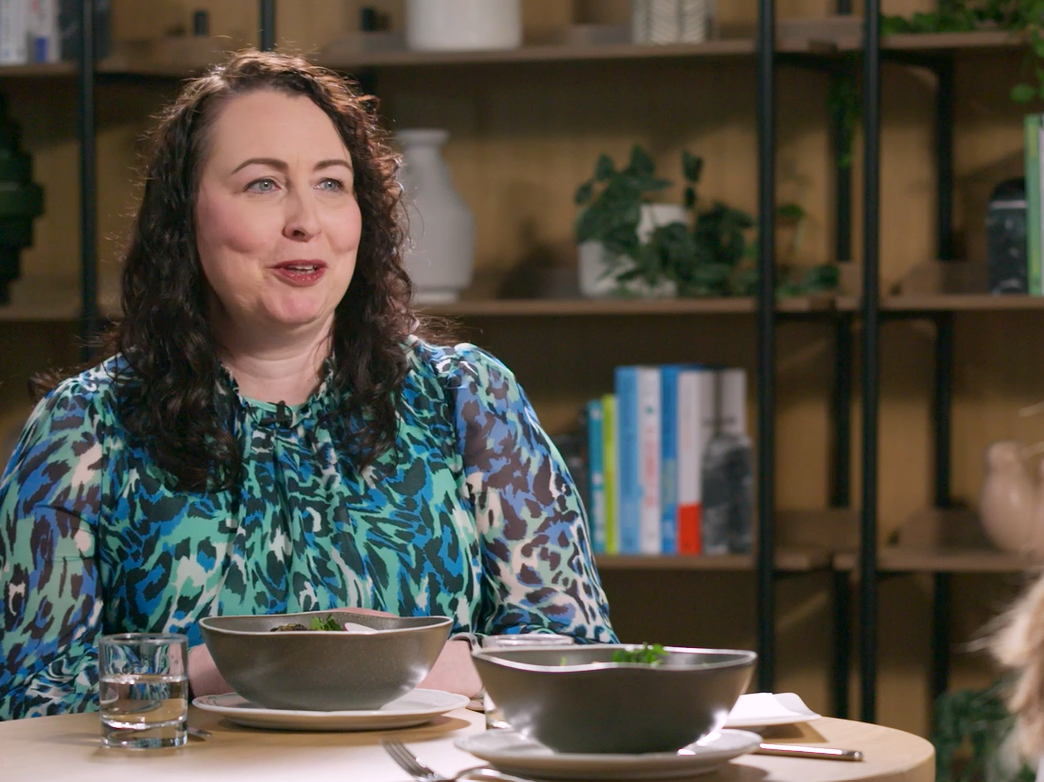
For starters
Faith
I’m interested to know more about inclusive design, how and why did you get into it?
Amy
It was really down to exposure, as a young carer I realised how inaccessible physical spaces were, I was dragging a wheelchair up cobbled streets or trying to enter a grand building with a set of stairs and it was almost impossible. I’d be going round the back by the bins, through the kitchen and this started to seed into my consciousness. I could see multiple people facing micro frustrations that in the grand scheme added up to a lot of frustration, and that let me into making spaces more accessible and a little bit easier.
Faith
That personal experience is so important in consciousness. I have a family member who is a wheelchair user and we’ve had those same experiences, a special grand theatre trip isn’t the same when you have to go in the back door and through the bowels of a building. There is a lot to think about when it comes to inclusive design.
Amy
Yes, and people often only realise there is a problem when they have personal exposure, because we all assume things should be better than they are. As an architect I always think about the physical space first – if someone can’t even get through the front door how can they expect to be employed?
Faith
And how can they ever feel included.
The main meal
Amy
I’ve worked in offices where wheelchair users couldn’t physically get in the building, but no one questioned it. Probably because until you look around a room and think who is here and who isn’t, that you start to question why some people aren’t in the room.
And it might not be physical, it might be the hiring process that stops them being included – the form might be really complicated, it could be who is represented on your website or your social media images.
Faith
Yes and if you have never had those experiences how would you know, if you only have non-disabled people designing products, services and systems they won’t think about those things and the inaccessibility just carries on. We need to involve more people with diverse viewpoints in the process.
Amy
I bang on about this all the time, including more diverse people in the process, you get a completely different perspective and that’s when the innovation happens. We need to involve people using more user-led design and use their feedback to iterate and improve.
Faith
One of the things I stand by is Microsoft’s commitment to empower every person on the planet, and if we’re going to do that we have to represent every person on the planet. It’s a huge ask, but it’s really important to hold yourself to that very high standard. We’re still learning, recently we were doing some hiring and holding assessment days, and I spoke to my team, some are neurodiverse and they pointed out assessment days were really difficult as they didn’t have down time to process the interviews – so we took that feedback and now try to space out the interviews.
But it is really important to have that space to speak up and not feel like there are going to be repercussions, at Microsoft we’re in a really privileged environment with our culture – but that’s not the same everywhere.
Amy
There is always that interplay, particularly when you just start a job you don’t want to appear a diva.
Faith
And there is the specific language of reasonable adjustments, but who decides what is reasonable? It feels like it almost puts a barrier up because you can only ask me for something that is reasonable – we should be asking how can I make you more comfortable at work or help you to be more effective? We need more open questions, so we get better answers.
Amy
Reasonable adjustment is so vague, it’s based on the Equality Act. For example, if I want to visit a shop does reasonable adjustment mean there is a ramp? Do I have to ring a bell? The shop owner might only rent the unit and doesn’t own the pavement so is it reasonable for a ramp to be installed? But if you go to an airport the expectations of reasonable are different, it is reasonable to expect an airport to enable a wheelchair user to access a plane without having to be manhandled or piggybacked up a set of stairs, or have your wheelchair stored or damaged so you can’t access it when you arrive at your destination.
Just desserts
Amy
Mostly it’s about talking to people and listening to their feedback.
Faith
That’s so true. At Microsoft we talk about come as you are and do what you love, and if we want people to feel like they can do this we need to show them that they can. That’s why it’s important we use our staff and colleagues, people who really work at Microsoft in our social media and in our images, to show you really can come as you are.
Takeaways
Amy
It’s great to hear about how Microsoft is open to feedback and suggestions from users and teams and feed this into innovation through diversity and inclusion. Representation is so important, and making sure the people shown in their media and promotion sets the tone for their culture and I think it’s great that they are using their own teams, and recognising who is and who isn’t in the room.
Faith
We all bring ourselves and our experiences to work and that is one of the ways we can drive improvement through demonstrating and celebrating our diversity.

